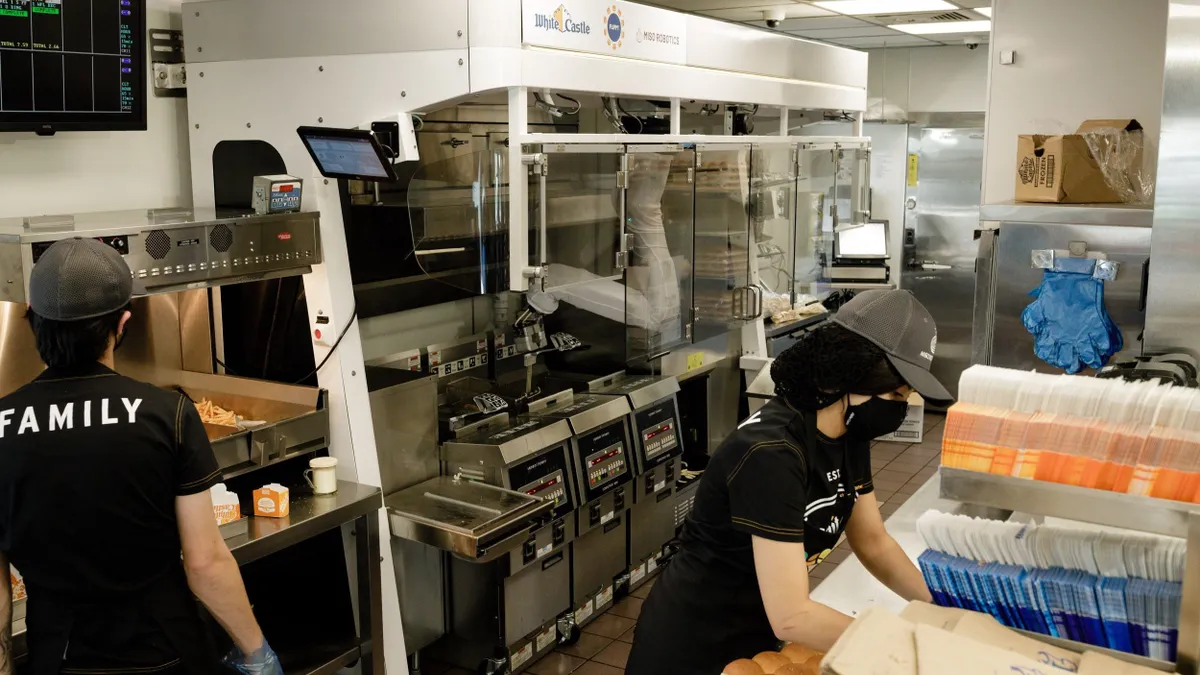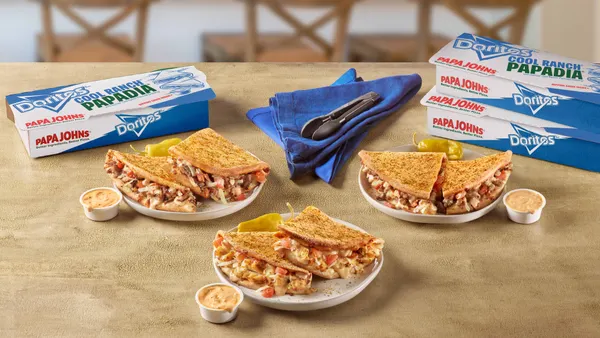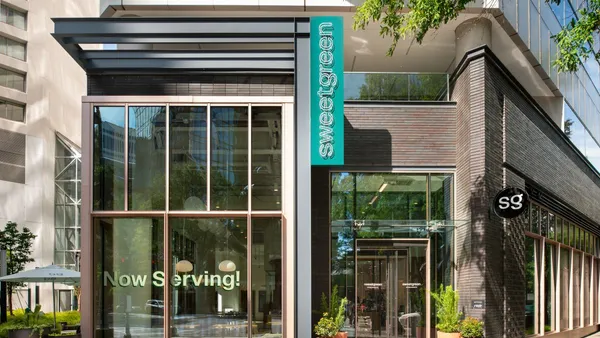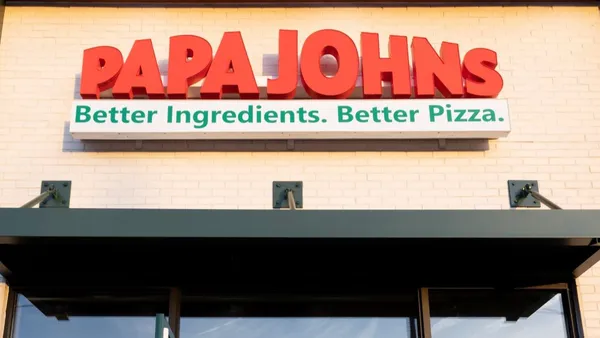Dive Brief:
- White Castle is expanding its partnership with Miso Robotics, creator of autonomous grilling and frying kitchen robot Flippy, beyond its initial pilot restaurant to 10 new locations in 2021, according to a company release.
- The QSR will implement the new commercially available version of Flippy Robot-on-a-Rail (ROAR), which launched earlier in October, to improve production speed and maintain consistent quality and taste.
- White Castle isn't the only chain leaning on robotics as a labor solution, and restaurant adoption could spike if diners remain wary about COVID-19 spreads in kitchens. Saladworks, a make-your-own salad chain with more than 100 restaurants, has partnered with Chowbotics' robot Sally to create customizable salads from 22 sealed ingredients in a 9-square-foot refrigerated machine with a touchscreen interface. Caliburger also launched Flippy in 2018.
Dive Insight:
Automated, robotic solutions for restaurants were already on the rise pre-pandemic, but this technology could become even more necessary as operators look for new ways to reduce costs and meet growing diner demand for convenience.
White Castle dubbed Flippy ROAR's capabilities "critical technologies needed to tackle new pandemic challenges such as social distancing in kitchens, takeout and delivery demand, and higher standards for health and safety via contactless solutions." The robot optimizes staffing during hard-to-fill, late-night shifts at the 24-hour restaurant, and integrates with delivery applications to sync order completion with driver pickup times to ensure the customer receives fresh food.
This tech could also make back-of-house operations easier for cooking staff by targeting a specific task, like frying certain menu items, and optimizing the process so employees have more time to spend on soft skills like customer service to secure diner loyalty.
Flippy's new sensors and camera capabilities also give White Castle insight into real-time inventory needs, such as projection and recommendations for bulk orders. Flippy ROAR also tracks production speeds to meet demand needs, making an average of 360 baskets of fried foods per day, or over 9,720 baskets since the pilot began in late September, according to the release. This level of efficiency could help QSRs gain a competitive edge over rivals, especially since drive-thru times have become a make or break for diners as dining room restrictions and closures remain in many municipalities.
McDonald's also began testing deep-frying robots and automated beverage equipment last summer. The robots cook chicken, fish and fries at a Chicago store, and the company said at the time it expects to pilot the technology in additional restaurants. The goal of the test was to improve customer wait times, which have been a stumbling block for the Golden Arches over the past few years. Recently, however, McDonald's announced it shaved down its drive-thru times by 30 seconds. The chain has not given an update on the pilot or whether the automated fry cooks will be expanded, but its interest in the technology could spark a trend among QSR chains looking to streamline their operations and improve speeds.













